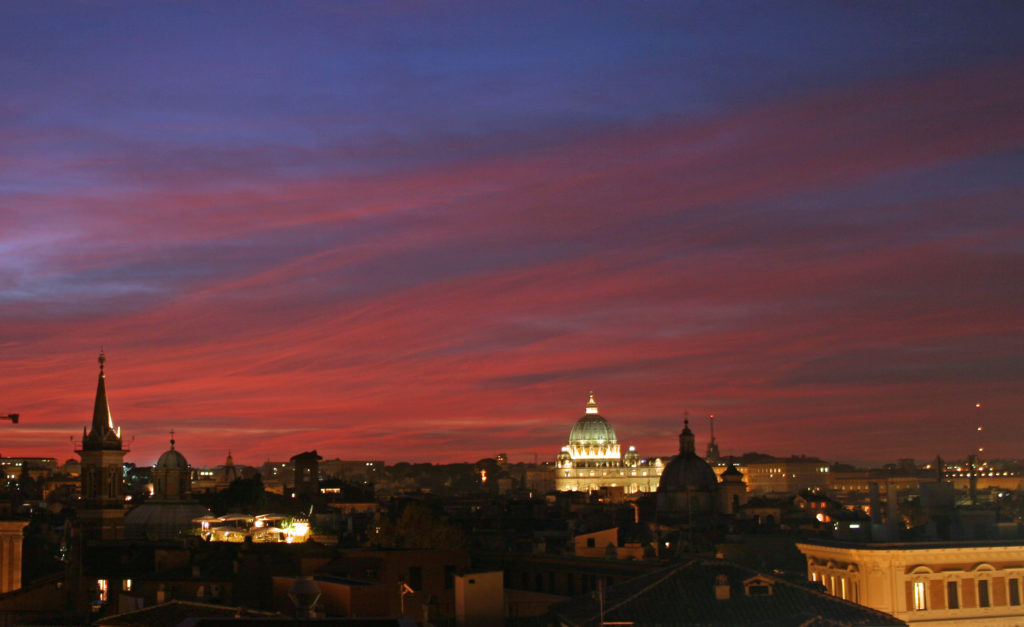
An old photo for this blog, but a good one. Shot from my old apartment.
In the traditional calendar, it is the Feast of the Dedication of the Basilicas of St. Peter, in the Vatican, in 1626 and St. Paul, on the Via Ostiense, in 1854.
The Basilica has its own Proper for various days of the year. Here is the Collect for today’s Solemnity:
The Basilica has its own Proper for various days of the year. Here is the Collect for today’s Solemnity (Novus Ordo):
COLLECT:
Deus, qui beati Petri Apostoli dignitatem
praecipue in nostra sacrosancta basilica facis esse gloriosam,
praesta, quaesumus,
ut et doctrina semper ipsius foveamur et meritis.
Dignitas, is “dignity”, of course, but also “moral importance” in liturgical prayers. For Apostles, this word is used to underscore their role in the Church precisely as Apostles.
LITERAL VERSION:
O God, who are now making glorious
the dignity of the the blessed Apostle Peter,
especially in our most holy basilica,
grant, we beseech You,
that we may be supported both by his teaching and by his merits.
How about the Vetus Ordo? Might there be a difference?
COLLECT:
Deus, qui nobis per síngulos annos huius sancti templi tui consecratiónis réparas diem, et sacris semper mystériis repæséntas incólumes: exáudi preces pópuli tui, et præsta; ut, quisquis hoc templum benefícia petitúrus ingréditur, cuncta se impetrásse lætétur.
LITERAL VERSION:
O God, Who for us bring each year the recurrence of the consecration day of this Your holy temple, and always bring us back safely to the sacred rites, hear the prayers of Your people and grant that whoever enters this temple to pray for blessings, may rejoice in having obtained whatever he sought.
You can sense behind this the practice of visiting churches on the day of their dedication to obtain an indulgence.
Also, that language used, repraesentas incolumes is similar to the prayers for the sick and for the dying when we ask the holy angels bring those who are ill back to the congregation in the church, or successfully to the liturgy of Heaven.


































The first version eliminates time. The faddish phrase “god do surprises” is nonsense because God doesn’t suffer the boundaries of time and is never surprised. My older brother said that Augustine was the first recorded person plumbing the intellectual implications of space-time theologically. Change, where possible, is expressed deltaX/delta-time. We can intellectually stop time using mathematical techniques but when God makes a thing permanent, he can do as he wishes. So does the numerator stop changing or does God freeze time (with the regards to the variable) as we understand it? I think maybe Aquinas got a glimpse of the answer just before his time was over and it just reduced him to burning his writings inadequate.